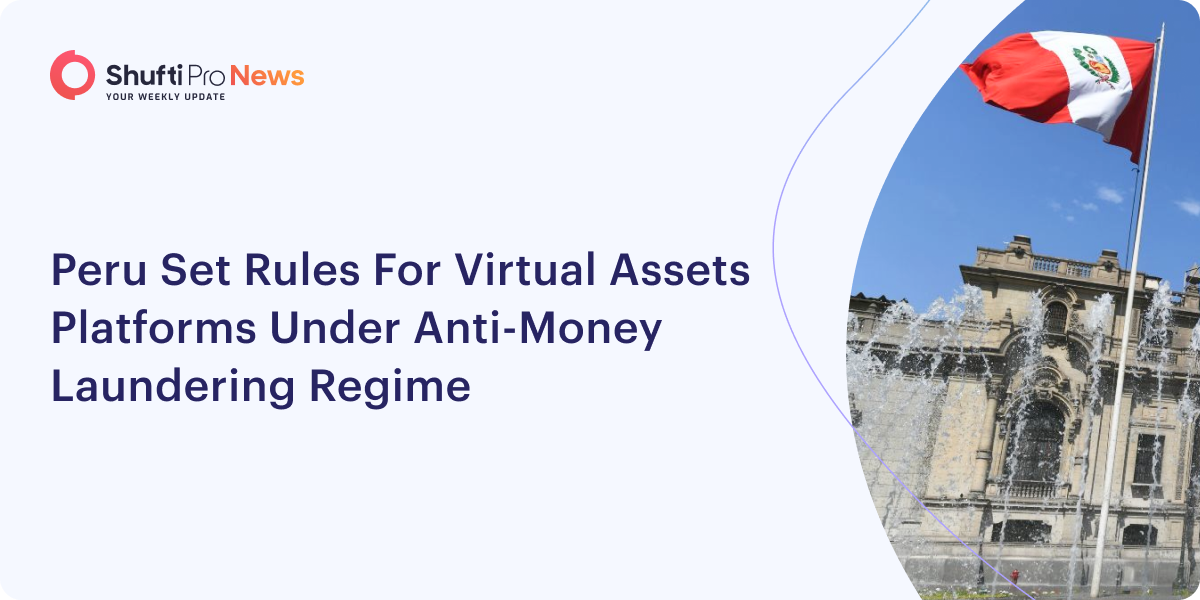Peru Set Rules For Virtual Assets Platforms Under Anti-Money Laundering Regime

The Peruvian government ordered virtual assets service providers to report their activities to the Financial Intelligence Unit (FIU) to prevent the integrity of the national financial system and combat money laundering.
Peru is a member of the Financial Action Task Force (FATF) to combat money laundering in South America. It has rigid laws; legislative “Decree 1106” sets out the legal framework for money launderers and financial criminals, and “Decree 25475” regulates terrorism financing methods.
Nevertheless, according to the Peru Bank Association (ASBANC) , from 2007 to 2016, more than $12,901m assets in Peru have been laundered. Now, when the crypto industry is proliferating at a fast pace, there is not any legal law in Peru to regulate the virtual asset industry. Until now, cryptoassets are unregulated, and there is no legal definition for the crypto industry. When there are not any obligations prohibiting the crypto exchange and transactions, Peru’s financial ecosystem is vulnerable to financial crimes. However, the framework for commercialising crypto assets (Bill No. 1042-2021-CR) does exist in Peru, but they did not previously force the transactions and acquisitions of the crypto assets. The Superintendency of Banking and Insurance Administrators (SBS) has been explicit in the past that the crypto transactions are not under their monitoring, and when the law framework exists, then SBS will be in charge of the companies registered in the virtual assets industry.
Supreme Decree No.006-2023-JUS has now ordered that virtual assets providers (PSAVs) be obligated by the money laundering regime exercised by the SBS through the government Financial Intelligence Unit (FIU). PSAVs are defined as businesses that are operated by international owners or companies that have foreign offices, or businesses which are involved in one or more activities. Similar activities are trading in any type of virtual assets or taking part in the latest cryptocurrency. The Anti-Money Laundering (AML) regulations now require businesses operating in these industries must hire a compliance officer or be fully compliant. Additionally, the companies must implement effective AML measures and should submit suspicious activities to the authority.
This obligation is the first country regulation against cryptocurrency trading and acquisition of virtual assets. The more significant rules for each category of digital coins will be issued soon by the regulatory watchdog. So the companies should consider implementing the measures required to combat money laundering according to the FIU.
Suggested Reads:
ABA HOUSE OF DELEGATES AMENDS THE AML MODEL RULE TO CURB FINANCIAL CRIMES
DFSA AND FINANCIAL INTELLIGENCE COLLABORATE TO COMBAT FINANCIAL CRIME IN UAE
IRELAND CAMPAIGNS TO MAKE DUBLIN THE EU AML AUTHORITY HEADQUARTER











